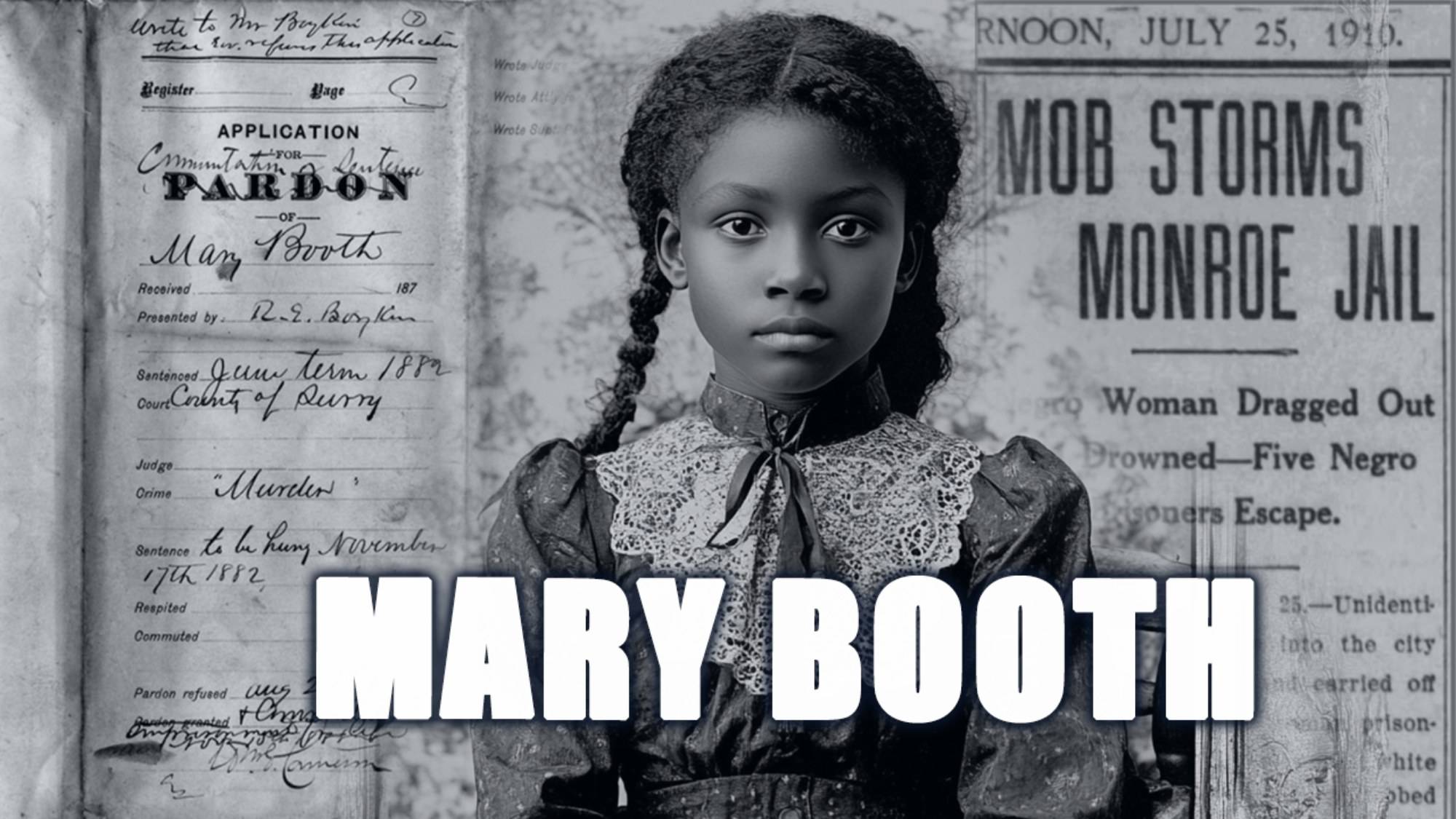One summer day in the year 1885, a 13-year-old girl by the name of Mary Booth stood in the courtroom in tiny Willow Creek, her small frame shaking as she faced the crowd. She was surrounded by people who were whispering, and casting accusatory glances, their words were like daggers. The townspeople had never seen a black child in their community, and Mary was quickly blamed for something she didn’t understand.
It all started when Thomas Grant who was a local farmer was found dead, and his body was discovered in the fields just beyond the fringes of town. The cause of his death was unclear, but the sight of a young black girl who had wandered too close to his property that fateful day was enough to stir suspicion. The sheriff, a man known for his prejudice, quickly decided that Mary, who had been working in the nearby cotton fields with her mother, was the culprit.
The trial was swift—too swift for justice. Mary was a stranger to the town, the daughter of a former slave who had only recently relocated there in search of work. The townsfolks are afraid of her, not because she is guilty, but because of her race. The jury was all white, and no one seemed to question the flimsy evidence against her. There was none at all. No witness had seen her at the crime scene. No weapon had been found. Yet, when the prosecutor spoke, the people listened with rapt attention, weaving a narrative of Mary as a wild, dangerous girl who had caused the farmer’s death.
An elderly man named Mr. Anderson was Mary’s defence lawyer, who did his best to beseech her case, but his voice seemed so small against the storm of hatred. “There is no proof,†he argued, his voice cracking. “We have nothing to suggest this child has harmed anyone.†But the townspeople were determined, the judge was biased, and soon the verdict was read aloud: guilty.
The court sentenced Mary Booth to die. The news spread like wildfire across Willow Creek, and though many were horrified by the injustice, no one spoke out. The law, it seemed, was clear. She had no place in this world, a black girl in a white man’s town.
That night, Mary’s mother, a quiet woman named Sarah, cried in the corner of their small cabin. She couldn’t bear to watch her daughter be led to her death. But Mary was different. Despite the fear that gripped her heart, she remained calm. “Mama,†she said, taking her mother’s hand, “I’ll be all right. I know it’s wrong, but I’ll keep my faith.â€
Word of Mary’s wrongful conviction spread beyond the small town, eventually reaching the ears of a lawyer from the city. His name was Thomas Grant, a man who had spent years fighting for the rights of those wrongfully imprisoned, particularly African Americans. He had heard the rumours about Mary’s trial, and the more he investigated, the clearer it became that Mary was innocent.
Thomas Grant travelled to Willow Creek, speaking to the few who would listen. He found witnesses who had seen a group of white men near the fields on the day of the murder, and further investigation revealed that Thomas Grant had been involved in illegal dealings, making enemies of many in town. The more Thomas Grant uncovered, the more it became clear: Mary Booth had been framed.
The lawyer fought relentlessly, filing appeals, rallying the press, and calling on anyone who could help. Eventually, the case reached a higher court. The city lawyer, backed by the weight of new evidence, managed to have Mary’s case reopened. The judge, now faced with undeniable proof of her innocence, finally ruled in her favour. Mary was set free.
The entire town, the ones who had sentenced her to death, were left in shame. But Mary, having faced the darkest of times, didn’t hold hatred in her heart. When she returned to Willow Creek, no one dared to look her in the eye. They saw her, and they saw their guilt.
Mary Booth’s story became one of legend, the tale of a young girl who was wrongfully condemned but never gave up. As she grew older, she became an advocate for justice, dedicating her life to fighting for the oppressed. She never let the injustices of her past define her, and though she carried the scars of what happened to her, she rose above it all, determined to make the world a better place.
Her legacy lived on, a reminder to all that even in the darkest of times, there is always a chance for redemption, and that one voice, no matter how young or unheard, can change the course of history.




No comments yet
Be the first to share your thoughts!